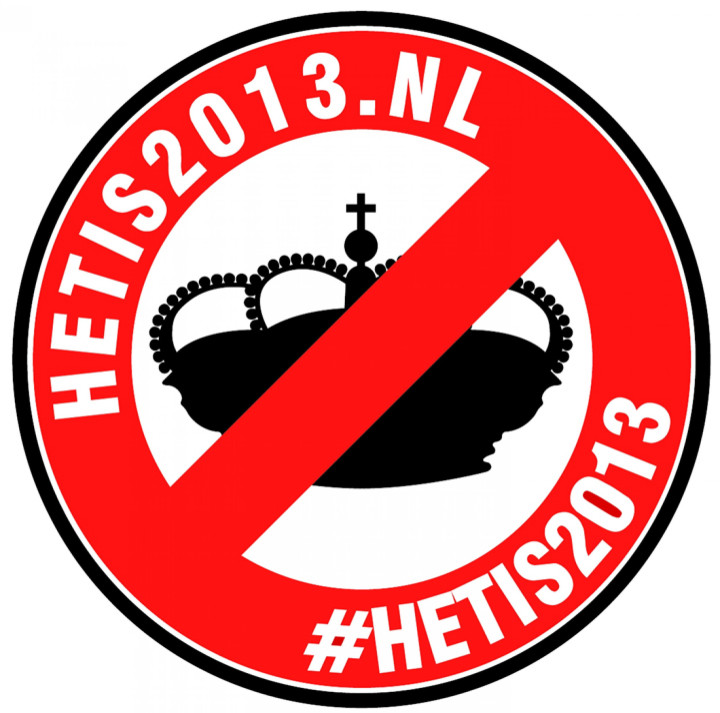Investiture Of Dutch King Willem-Alexander Will Meet With Protests By Anti-Monarchists In Amsterdam

What role does a European monarch play in the 21st century?
That question is being put to the test in the famously liberal Netherlands, where Willem-Alexander, Prince of Orange, will be named king on Tuesday morning. His mother, the beloved Queen Beatrix, is abdicating the throne after 33 years, and some anti-monarchy groups are taking the opportunity to say the time has come to put an end to the royal family for good.
The city of Amsterdam has agreed to allow protests on Tuesday in six areas of the city, where groups such as Hetis2013 (It Is 2013), Nieuw Republikeins Genootschap (New Republican Association) and Pro Republica will hold demonstrations, according to a Radio Netherlands Worldwide report.
Protests will be prohibited at Dam Square, where the investiture ceremony will take place, although Amsterdam Mayor Eberhard van der Laan reportedly told a local television station that individuals there will be permitted to hold banners in opposition to the monarchy. The right to protest is written into Article 9 of the Dutch constitution, but a city mayor may impose restrictions for the sake of public safety. Offenders risk fines of as much as €3,900 ($5,106) or two months in prison.
The Kingdom of the Netherlands is a constitutional monarchy, meaning the monarchy is still formally part of the nation’s government; however, the powers of the Dutch king or queen are limited, defined by parameters laid out in the country’s constitution. Protest groups are hoping King Willem-Alexander will be the country’s last monarch, as a proposal to remove the monarchy from the Dutch government is working its way through the legislative process. If successful, such a move would render the Dutch throne an almost entirely ceremonial one.
“[T]hen there is not much left apart from cutting ribbons,” Anjo Clement, of the New Republican Association, told NPR on Sunday. “And the question is whether his daughter will want to do that in 20 years. We don’t think so. We think he will be the last Dutch king.”
It’s difficult to say exactly how organized or widespread the Dutch anti-monarchy movement is. Gijs Peskens, the 27-year-old co-founder of It Is 2013, told Radio Netherlands Worldwide that 1,000 people have already signed up to take part in a demonstration at Amsterdam’s Waterloo Square on Tuesday. Yet, many of the Facebook and Twitter pages for Dutch republican groups are small, with fewer than 1,500 members.
Peskens said he'd like to see the issue of the royal family be decided by the people of the Netherlands. On its website, It Is 2013 launched a petition calling for a change in Dutch law, which Peskens said prohibits referendums on the monarchy. As of Sunday afternoon, the petition had been signed by only a little more than 1,100 people, far short of the 5,000 signatures the group is asking for. Nevertheless, Peskens is hopeful the movement will make an impact. In his interview with Radio Netherlands Worldwide, he said leaders in the 21st century should be chosen for their qualities and not through birthright.
“We want a discussion about the monarchy,” Peskens said in the interview. “It’s out of date. It’s wrong that we can’t judge our head of state. Immunity really shouldn’t exist nowadays.”
© Copyright IBTimes 2024. All rights reserved.






















